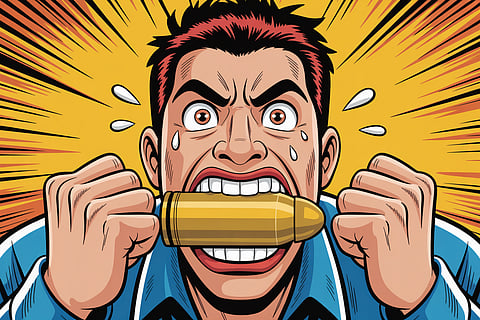

Long before modern medicine, surgeries and battlefield treatments were done without anaesthesia. Soldiers were given a bullet to bite during painful procedures so they wouldn’t scream or clench their jaws against metal tools. This harsh practice gave birth to the phrase “bite the bullet” — a command to stay strong when there’s no easy way out.
The earliest written examples appear in the 1800s, describing moments when people had to endure discomfort with courage. Over time, the idiom moved beyond war and medicine. It came to mean facing anything unpleasant — a tough exam, a difficult conversation, or a risky choice — with calm determination.
Today, when someone says “bite the bullet”, they’re asking you to stop delaying, gather courage, and push through. The phrase has survived because it captures a universal truth: bravery often begins in the mind, not on the battlefield.
So the next time you hesitate before a challenge, remember the history behind these words.